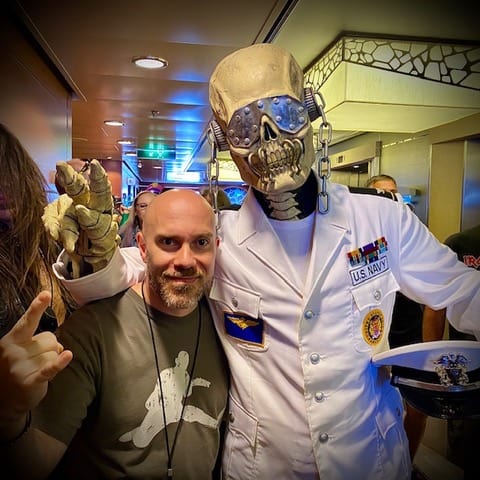
Much has been written everywhere about the decade that was and the decade ahead. Ten years seem such a long time to wrap my head around, let alone plan for.
Maybe that is why I am having so much trouble deciding what to focus for this year 2020 only, when this whole decade seems to loom large ahead.
Thinking too far ahead causes me anxiety. I am paralysed instead of energised by all the possibilities. As a result, I tend to avoid thinking really long term as much as possible. I don’t want to set myself up to fail.
Except now that I have discovered FIRE (Financial Independence and Retire Early) concepts, I do think long term about my financial goals. My age has caught up with me anyway. In my late forties, retirement is only years away, not ages and ages away. I really have no choice but to think a bit long term financially.
I hope to transfer this financial long term planning to other areas of my life. And so I decide I should have goals for 2020, but with an eye on the decade ahead as well.
Goals for the decade
I am binge listening to Jillian Johnsrud on her new podcast Everyday Courage. In episode 4, she talks about how we don’t give ourselves enough time to achieve our goals, that we get disappointed and throw in the towel because we did not achieve them in a year. That is me!
She shares a quote attributed to Bill Gates – “People overestimate what they can accomplish in a year and underestimate what they can accomplish in 10 years.”
So for the first time ever, instead of having vague goals for the future, I will nail down three big dreams that excite me.
Drumroll please! My 3 goals for the decade are:
(1) Retire (end of 2026 or mid 2027 ie before I turn 56)
(2) Visit Antartica
(3) Run a marathon
Retire at 55
You will notice that only retiring has a timeline – that is because I already have a plan in place to retire at 55. It is so much easier to automate weekly deductions into retirement accounts than it is to automate daily exercise!
Knowing that this next decade will signal retirement makes me feel excited and apprehensive at the same time.
Excited? Because I will have free time all the time when I retire, yay! All that sleeping in without any regard for alarm clocks. Staying up late just because I can – no need to get to bed earlyish so I can get up earlyish. Now that is heaven to me 🙂
Apprehensive? It is a HUGE change in lifestyle. What if I can’t get there in the time frame I want (ie within the next 7 years)? What if having all that free time is a drag?
Antartica
Visiting Antartica has been a dream for a long time. There is something about the starkness of the environment, the remoteness, the cold and the wildlife – penguins, in particular, that just ignite my imagination.
It cost A LOT though, so I need to budget for it within my retirement figures. Or visit within the next 7 years while I am still working. Saving up for this expense will give me time to research alternative methods of getting there, if there are any.
Run a marathon
Out of the above 3 goals, running a marathon will be the hardest. Why? Because I don’t like exercising.
But I need to exercise for my health – my cholesterol was the highest it had ever been last year. I have run 10km fun runs before. Running a marathon will be a massive personal challenge. I want a big goal to aim for and get excited about, when I am struggling to get out of bed to run in the mornings.
I also admire the grit and sheer mental strength it takes to complete a marathon.
This is definitely a stretch goal, haha.
So what about 2020?
In episode 9* of Everyday Courage, Jillian chats to David Cain from raptitude.com They discuss David’s post ‘Go Deeper, Not Wider’ that he wrote in December 2017 (which received 58 000 shares!). It is about a ‘Depth’ year – a year where you don’t start anything new but explore more deeply the stuff you already have.
“No new hobbies, equipment, games, or books are allowed during this year. Instead, you have to find the value in what you already own or what you’ve already started. You improve skills rather than learning new ones. You consume media you’ve already stockpiled instead of acquiring more.”
This really speaks to me. I am someone for whom the thrills of something new always appeals. These days, it may not be new physical stuff but I am endlessly attracted to new ways of thinking, productivity hacks, how to be more efficient etc. What can I say? I just have a short attention span and get bored easily.
So with Jillian’s and David’s combined wisdom, I want to do my own version of deeper, not wider in 2020.
How will I achieve my goals?
My favourite book of 2019 was James Clear’s Atomic Habits (affiliate link) – I even wrote a review of it.
Habits is my word for 2020. And this is why – as articulated by James Clear on Twitter:
Your outcomes are a lagging measure of your habits.
Your physical fitness is a lagging measure of your eating and training habits. Your knowledge is a lagging measure of your learning habits. Your net worth is a lagging measure of your financial habits.
You get what you repeat. pic.twitter.com/9dhwBapz81
— James Clear (@JamesClear) January 1, 2020
In 2020, I will build good habits in the areas I want to focus on, to take me through the decade ahead. I want to focus on consistency, not intensity. And I am done with motivation and will power (or lack thereof). I want to embrace the process, not focus on outcomes. In other words, I want to focus on the journey, not the destination.
So what are my 2020 goals?
(1) Exercise and stretch daily
Health is everything. And I would argue, perhaps more important than wealth. Without my health, I will not be able to enjoy my wealth to the fullest. I want to be able to use all that moolah!
My goal is to be consistent this year – run and/or walk everyday and stretch daily. I am notoriously bad at stretching. As a result, I see the osteopath for regular tune ups every 2-3 months. I can save this money if I make the effort to stretch my muscles daily.
I haven’t been motivated to run ever since I completed last year’s Run for the Kids fun run. There is just enough time to start training for this year’s event. The goal is to continue running after the event, through winter. Yuck!
This is where I need to create a new habit … or tell myself I am a runner, therefore I run.
(2) Journal daily
I started this well last year as I desperately needed to find clarity – writing helps me sort through my jumbled thoughts.
But I wasn’t very consistent.
So once again, I will use the lessons learnt in Atomic Habits to be consistent and incorporate it into my morning and night routines.
This is still a goal as living an intentional life is a perpetual goal and I need to be in touch with me to do that. For too many years, I lived a stress filled life and just survived day to day. I never want to go back to that way of life.
(3) Read more
This is not a new hobby.
I’d forgotten how much I enjoyed reading fiction. Since discovering FIRE, I have read mainly personal finance blogs and books.
During my time off after my extended family had gone home on New Year’s Day, I read (and listened) to 6 books, 2 of which were related to personal finance. I was astounded. I have got my reading mojo back!
My goal is to read 20 books this year.
(4) Be more sustainable
I installed solar panels at the end of 2018 and as a consequence, reduced my electricity bill significantly. I paid less than $150 in total in 2019. Some of my colleagues who installed their panels (albeit with slightly larger systems than mine) managed to pay nothing at all ie they produced more electricity than they needed. So I can still improve in this area.
What I desperately need now is to reduce my water and gas consumption. While this will be good for the planet, it will have financial benefits too. Gas prices have doubled in the last 5 years.
And I will look at reducing my use of plastic, just starting small. For example, not buying any fresh fruit and vegetables wrapped in plastic and use a shampoo bar instead of shampoo and conditioner in plastic bottles.
(5) Declutter
This has defeated me every year. For many years.
Marie Kondo, Joshua Becker (Becoming Minimalist) etc – I just read, agree and then not take any action!
I considered not putting this as my goal this year but I decided that in this year of diving deeper, I will tackle it again. It ties in well with reducing plastic, having less stuff generally. I am pretty good about not introducing new stuff into my house but I can’t seem to part with the stuff I do have which I don’t use.
I will start small just by keeping my kitchen bench clutter free – this will be a huge effort as it is my ‘dumping ground’, haha.
This may be the year to learn how to sell stuff online. Or just donate them.
(6) Financial goals
My main goal is to retire at 55 – I have a 7 year timeline.
In order to achieve this goal, I need to:
(a) Invest $25000 annually into my shares portfolio
This is a challenge this year as my salary is now reduced due to transitioning to a lower stress role since July 2019.
My focus is to find every bit of extra cash and throw at it. This is important because the majority of my net worth is tied up in my house and superannuation, neither of which I can use to sustain me from 55 to 60.
(b) Maintain salary sacrificing into superannuation (retirement account) until end of financial year in June then reduce the amount
My rationale is that based on existing fund balance, it will grow to the desired amount by the time I can access it at 60 years old, if the fund can maintain a growth rate of 7%. 2019 was an amazing year – not sure 2020 will come anywhere close. So I will review the balance at at the end of June and decide. I do need every spare cent to increase my shares portfolio.
(c) Aim for a savings rate of 50%
My overall savings rate was 40% (based on after tax pay) in 2019. I did not feel deprived in any way so I think I can still do better. And that was with 2 overseas trips.
This year, I will have one trip only – to visit family in London and attend a wedding Toronto. My challenge is to find less expensive accommodation especially in London. House sitting is not a good fit personally as I am not great with animals. I use my Qantas points for airfares so airfares will not blow the budget.
I am also hoping my utility bills should reduce as a result of reducing my water and gas consumption. This is part of my overall plan to reduce recurring costs such as home insurance and private health insurance.
I started a vegetable garden last year. The benefits were more than financial – the well being and relaxation from pottering around and watching plants grow then eating the fruits of your labour cannot be overstated. I will attempt to reduce costs this year by learning how to plant with seeds instead of buying seedlings.
And I have started to compost this year – this is an attempt to reduce my waste going to landfill plus I should save some money from not buying as much proprietary potting mixes, organic compost and the like.
And if I am successful in decluttering and learn how to sell stuff online, I just may be able to reach my aim of 50% savings rate. We’ll see.
Final thoughts
Phew! We come to the end, at last.
I will not be tackling the above goals with the same intensity all at once. Instead this year, I will ‘lean in’ to 3 goals every 3 months and as I develop the habits I need to succeed, I will move on to the next 3 goals. Thanks, Jillian – episode 10* of Everyday Courage.
So until the end of March, I will focus on exercising and stretching daily, journaling daily and becoming more sustainable. I will keep you up to date with my progress – it will give me an incentive to track my progress which I wasn’t so good at last year. So you can keep me accountable.
Deciding what to focus on in 2020 has taken most of my January! I am really looking forward to diving deeper into my 2020 with no new hobbies or philosophy.
How about you? Have you set goals for the decade ahead in addition to 2020?
*A note on Everyday Courage podcast – a new episode is released every Monday and at the time of publishing this post, episodes 9 and 10 have not been released. I signed up to get the whole season plus a workbook so I could work through them over 10 days or so.



